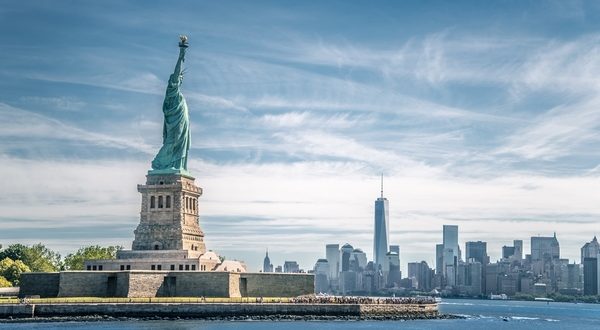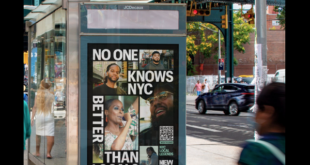[ad_1]
From 2015 to 2017, the United States’ share of the global travel market fell from 13.6 percent to 11.9 percent.
“That may not sound like a lot, but it translates to $32 billion in lost visitor spending and 100,000 fewer U.S. jobs,” said Roger Dow, President and CEO of the U.S. Travel Association, speaking at the association’s annual trade show, IPW in Denver this week.
Dow noted that many top-tier destinations such as Los Angeles, Miami, New York, Orlando, and Seattle, are “thriving” but despite their success, many visitors are choosing to travel to places other than the United States.
“More people around the world are traveling than ever before—but too many [are] visiting places other than the U.S.,” said Dow. “Bottom line: we’re falling behind our competitors.”
Despite the dip, the tourism industry remains encouraged by recent positive indicators.
Earlier this year, U.S. Travel banded together with 14 other major business groups in Washington to launch the Visit U.S. Coalition to address the decline in market share. Specifically, the new organization was designed to work with the White House to promote a simple and achievable idea—the United States should be the most secure and the most-visited country in the world.
“We’ve been urging the president to proclaim America open for business, and we’re very encouraged that he did so on the world stage in Davos,” said Dow.
The Visit U.S. Coalition is also promoting policies that could have an immediate, positive impact on inbound travel, including:
—expanding and rebranding the Visa Waiver Program
—setting goals for expanding travel visas
—boosting enrollment in Global Entry
—increasing the number of visa processing facilities worldwide, and
—developing criteria for 10-year visas with qualified countries.
Visit U.S. has also been vocal on policies it finds concerning, including “extreme vetting” of U.S. visa applicants, which could see U.S. agencies requesting the social media profile information and travel history from 14 million visa applicants.
“That’s a vast expansion of private data collection with dubious security value,” said Dow. “Making the U.S. visa system unnecessarily intrusive or burdensome will impact global interest in travel to the U.S. Even a small decline could cost the U.S. economy millions, which is why we are engaged on this issue.”
Dow also spoke about enhanced new technologies being employed by U.S. Customs and Border Protection, that are both facilitating entry to the United States, while also making the nation more secure. Among them, Biometric Air Exit technology, which uses facial recognition to securely identify departing travelers and automated passport control kiosks and an increasing number of airports, which allow eligible Visa Waiver Program travelers to skip Customs forms and lines. Further, U.S. citizens and Canadian visitors can also use a Mobile Passport Control app to expedite their entry into the U.S.
“We’re also thrilled to note the expansion of many trusted traveler programs,” said Dow, referring to the inclusion of Argentina and India to Global Entry, as well as the growth of Customs and Border Protection pre-clearance which is now available at 15 airports in six countries around the world.
An expansion of TSA PreCheck is also creating easier access for pre-screened travelers, who enjoy expedited screening for domestic flights. Seven new international airlines joined the program last year, for a total of 53 airlines.
“I have long said that trusted traveler programs, which thoroughly pre-vet travelers before they even get on the plane, are the bright future for both effective security, and efficient and convenient travel,” said Dow.
Dow also pointed to research from Destination Analysts that found the United States remains the top most-desired destination among international travelers.
“We undoubtedly have Brand USA to thank for that,” he said.
Brand USA is funded through 2020, but the U.S. Travel Association is now working with Congress to re-authorize that funding past 2020.
[ad_2]You can read more of the news on source
 Travelsmart
Travelsmart



